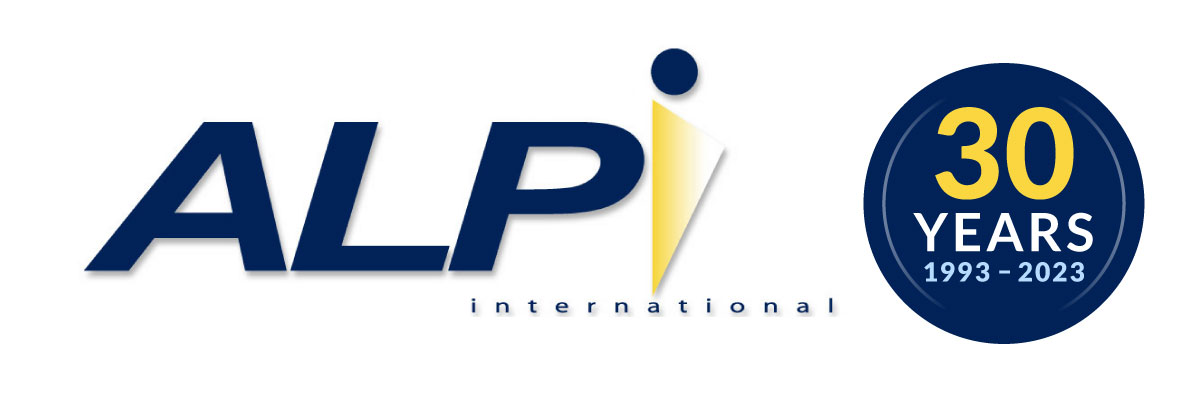Advanced Level Technical Test Analyst—ISTQB Software Testing Certification Training
Course Description




Why choose ALPI for ISTQB Advanced Level Technical Test Analyst certification training?
- ALPI's training is accredited by ASTQB, the U.S. Board for ISTQB certification, so you can be certain you are getting excellent training quality.
- We use certified live instructors in both our in-person and virtual classes so you can ask questions and get answers right away.
- We focus on real-world examples.
- We teach using interactive, hands-on exercises.
- This ALPI course is eligible for a free refresher guarantee so you can re-take the course within 4 months at no additional charge. Plus, if you meet the criteria, you could also re-take your exam for free. Contact us for information about this unique benefit that gives you peace of mind.
High-quality test designs and specifications are the key to precise test cases and an efficient and effective testing process. This hands-on course provides technical test analysts with the ability to define and carry out the tasks required to fulfill the test strategy in terms of technical requirements. This training course presents a comprehensive overview of methods and techniques for deriving and specifying software tests based on the system’s implementation and structure (“white box tests”). On completing the course, attendees will be able to select and apply techniques for test case derivation such as control flow or data flow testing as well as static and dynamic analysis. We will look at non-functional testing techniques such as reliability testing, portability testing, performance, load and stress testing. We will also discuss how to succeed in building robust automation architectures and using a variety of tools to reach quality targets. We suggest that attendees hold the ISTQB Foundation Level certificate, especially if they intend to take the ISTQB exam, but non-certificate holders can also benefit from this course.
By the end of this course, an attendee should be able to:
- Recognize and classify the typical risks associated with the performance, security, reliability, portability and maintainability of software systems.
- Create test plans which detail the planning, design and execution of tests for mitigating performance, security, reliability, portability and maintainability risks.
- Select and apply appropriate structural design techniques to ensure that tests provide an adequate level of confidence, based on code coverage and design coverage.
- Effectively participate in technical reviews with developers and software architects applying knowledge of typical mistakes made in code and architecture.
- Recognize risks in code and software architecture and create test plan elements to mitigate those risks through dynamic analysis.
- Propose improvements to the security, maintainability and testability of code by applying static analysis.
- Outline the costs and benefits to be expected from introducing particular types of test automation.
- Select appropriate tools to automate technical testing tasks.
- Understand the technical issues and concepts in applying test automation.
- For participants attending class remotely (Virtual Live), the exam can be scheduled online from home/office or by visiting a test center. Visit ISTQB Online Exam Information and Locate a Test Center for details.
- For participants attending class in Chevy Chase, MD, the exam will be administered on last day of class, ending by 5pm, so please plan your travel accordingly.
Duration
3 day(s)Time
9 - 5 ETPrice
$1,950Labs
Exercises reinforcing Learning Objectives help to understand and apply topics in the course.
Intended Audience
The target audience for this course includes:- Software Developers
- SDETs
- Software Test Engineers
- Senior Testers
- Test Analysts
- Test Leads
Prerequisites
You must have obtained an ISTQB Foundation Level Certification (CTFL) to be eligible for Advanced Level Certification and have 3 years of experience.Prior to attending class please download and review the following document: Advanced Level Technical Test Analyst Syllabus
Outline
The Technical Test Analyst's Tasks in Risk-Based Testing
- Introduction
- Risk Identification
- Risk Assessment
- Risk Mitigation
White-box Test Techniques
- Introduction
- Condition Testing
- Decision Condition Testing
- Modified Condition/Decision Coverage (MC/DC) Testing
- Multiple Condition Testing
- Path Testing
- API Testing
- Selecting a Structure-Based Technique
Analytical Techniques
- Introduction
- Static Analysis
- Control Flow Analysis
- Data Flow Analysis
- Using Static Analysis for Improving Maintainability
- Call Graphs
- Dynamic Analysis
- Overview
- Detecting Memory Leaks
- Detecting Wild Pointers
- Analysis of Performance
Quality Characteristics for Technical Testing
- Introduction
- General Planning Issues
- Stakeholder Requirements
- Required Tool Acquisition and Training
- Test Environment Requirements
- Organizational Considerations
- Data Security Considerations
- Security Testing
- Introduction
- Security Test Planning
- Security Test Specification
- Reliability Testing
- Measuring Software Maturity
- Tests for Fault Tolerance
- Recoverability Testing
- Reliability Test Planning
- Reliability Test Specification
- Performance Testing
- Introduction
- Types of Performance Testing
- Performance Test Planning
- Performance Test Specification
- Resource Utilization
- Maintainability Testing
- Analyzability, Changeability, Stability and Testability
- Portability Testing
- Installability Testing
- Co-existence/Compatibility Testing
- Adaptability Testing
- Replaceability Testing
Reviews
- Introduction
- Using Checklists in Reviews
- Architectural Reviews
- Code Reviews
Test Tools and Automation
- Integration and Information Interchange Between Tools
- Defining the Test Automation Project
- Selecting the Automation Approach
- Modeling Business Processes for Automation
- Specific Test Tools
- Fault Seeding/Fault Injection Tools
- Performance Testing Tools
- Tools for Web-Based Testing
- Tools to Support Model-Based Testing
- Component Testing and Build Tools
